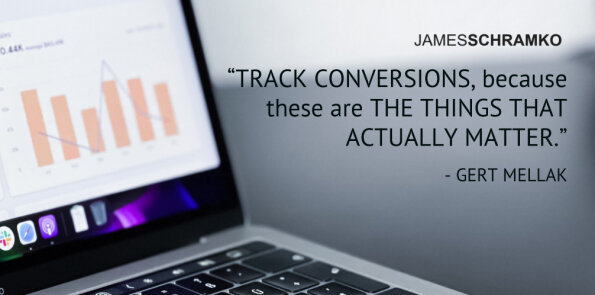Podcast: Download (Duration: 23:14 — 25.0MB)
Get Notified Of Future Episodes Apple Podcasts | Spotify | Amazon Music | Android | Blubrry | Gaana | TuneIn | Deezer | Anghami | RSS | More
Google updates visibility varies – some they announce, most they don’t. In this guesting, SEO Leverage’s Gert Mellak discusses how you can work with these Google’s latest algorithm updates to maintain or improve your ranking.
Gert will tell us how to determine if a specific update impacts our site.
He’ll run through one of the latest updates and what it means for site owners.
And he’ll recommend some steps you can take in case a relevant update does occur.
Table of contents
1. Daily versus announced Google updates
2. One of the more recent updates unpacked
3. Will this update impact my site?
4. Coming up with an effective content layout
5. The rudimentary approach and beyond
6. Does everyone get told what to do?
7. But I don’t want to rank for that….
8. Is there anyone Gert CAN’T help?
9. What to check in case of an update
10. Know that SEO still works
Daily versus announced Google updates
You may remember the days of Google Panda and Penguin. Google are constantly tweaking their algorithm, and most of the changes go unannounced – so what’s the difference between daily updates and the stuff they do make public?
It just makes sense that there’d be multiple updates every day, says Gert, because Google wants to make users happy. And Gert and his team adjust accordingly to these tweaks.
But then there are updates Google actually announces. They don’t tell exactly what happens in these updates, says Gert, but with Panda they knew it was about content quality, and with Penguin it was about links.
These days, Google mostly launches so-called core updates, which can be a lot of things, or also product reviews updates, which often target e-commerce and affiliate sites.
One of the more recent updates unpacked
One of the really interesting updates, says Gert, is the recent helpful content update, because there was big marketing around it. There was something of a push to convince people that adapting to the update organically was not so easy anymore, and Google ads were the way to go.
Really, Gert says, there’s still a lot of ways to get SEO rankings and for free without paying for clicks. But definitely the helpful content update was framed from Google’s perspective, in the sense that not everything you have is going to rank – we’re not indexing everything (there is a Google crawl budget); we’re not ranking everything, so really pay attention to those things.
One actionable item Gert has been trying to tell clients for years is, just think, what kind of mindset does the user have when they actually perform a search? If I land on your page through a search result, am I actually going to find what I’m looking for easily, quickly?
We have to understand that people coming through a search query we rank for have a certain set of expectations. And if we are not meeting the set of expectations, it’s not “helpful”.
When that happens, people will hit the back button and click on a different result. And Google will pick up on that.
Will this update impact my site?
As Google never actually publish their algorithm, how do we know that a certain update is going to impact our site, asks James?
That’s an important point to bring up, says Gert. A lot of people will tell him about an analysis they’ve heard from some SEO that tested a million websites to determine what the latest update was targeting.
Ultimately, it’s not actionable information for the average user. You need to break down the impact of an update down to your particular website, and this is not going to be the same way as your competitor’s website.
Obviously, keep an eye on the competitive space, but if you drop, you really want to know what’s actually happening in your particular space in this particular keyword so you can apply search marketing SEO. You really need to break it down to your site and know, what are you going to be executing or optimizing on your website the next week, in order to compensate?
Coming up with an effective content layout
Now, the helpful content update has actually been good for James. Is Gert seeing that across his clients?
Yes, to be honest. And part of it has been building up a certain layout to present content on a website, to make sure it’s extremely user-friendly.
Think about a Wikipedia page – it ranks well because it’s really, really helpful. You can navigate it, you can browse, you can engage with the content, you can find the section you’re interested in and jump to it, it has great mobile optimization.
By studying what Wikipedia does well and testing bits and pieces, Gert and his team have come up with a content layout that is helpful and that actually gives clients a ranking boost.
The rudimentary approach and beyond
So James expects people look at their analytics to see how they’re doing – page visits, traffic for words, Googling themselves and seeing how they rank – those are basic. What’s the next step beyond that?
The rudimentary way still works, says Gert, and they’ve been doing it in the past. The problem is knowing how to interpret the numbers.
Many people just take overall traffic, and whether they’re getting more or less traffic after an update. A few people actually break it down and look at the organic segment, ignoring direct traffic, social media and people typing in their domain name, and looking at what the search traffic’s doing.
But even there, search traffic is a skewed metric, because you might have one article or post getting the vast bulk of visits. That doesn’t do a thing for you – you want to look at what’s important for you per article.
This is where conversion comes in – how am I converting after the update versus before?
In SEO Leverage, they have a feature, call it KPI overview, where they see everything broken down from search traffic to see where people land. But then they have lately a specific feature called impact update, where you can select the update you want to analyze and see how your site performed before and after that.
This lets you then dive deeper, see what’s changed, and target specific articles that seem to be affected.
Does everyone get told what to do?
Gert tells James and his team what to do with their SEO, whether it’s content pruning or updating an article. Do all his clients get that, or do they have to figure out the next step from the data?
They have different modalities, says Gert. Some people only use their app, and for them there’s training so they know their way around.
In a demo, they have people who can ask questions on a weekly call with Gert. There’s also a ticket system they can use to report things Gert and his team can analyze and give directions for.
And there are people like James and his team for whom, month after month, Gert looks at the situation in the app and recommends steps for, say, the next couple of weeks, to drive more conversions.
But I don’t want to rank for that…
Now, what happens if you’re ranking for something you don’t want to rank for?
It’s important first of all, to know about it, says Gert, because there are definitely ways to go about it.
You can deoptimize a specific page; you can work on internal linking to give Google a better idea of what you do and do not stand for; you can externally link to someone else on the topic or to Wikipedia, for example, to tell Google that there is a better authority than your site.
Some people even create a new product because they rank for something they don’t have just yet. One client of Gert’s created a six-figure company based on something they just happened to rank for.
Is there anyone Gert CAN’T help?
With all the types of businesses Gert works with, is there any he feels he wouldn’t be able to help?
After 20 years and lots of industries and experience, probably not. They are largely focused though on courses, coaching, membership and ecommerce.
They also do business in at least three languages, even four.
What about more “gray” industries, asks James?
They’re not the experts there, says Gert, though they have done some such work in the past. But very short term, and Gert is all about long-term thinking.
What to check in case of an update
What would Gert advise the listener in case of an update, say someone got wind of it in the news? What would be the go-to thing to do?
First of all, Gert would recommend everybody really track conversions. It’s easy to set up in Google analytics – your developer or webmaster can probably help.
Track conversions, because these are the things that actually matter. And conversion doesn’t mean opting in – it can be that somebody checks you out, they go to your about page, or to your contact page after reading one of your articles.
This tells you how many people of 100 visitors that come to your site are actually interested. And then you can break it down either with Google Analytics or a tool like SEO Leverage, where do those people come in?
So if you have an article that triggers a lot of people to go to your about page, to your contact page, to your sales testimonials, etc., that would seem to be a good entry point. And as James teaches in his community, do more of what works, so Gert likes to circle around those articles, and do more of the content work also on other channels.
if you have set up your conversions, says Gert, it’s easy to see if they’ve changed over the course of an update. Are qualified users still coming to your site, and has the number increased?
Or is there a drop? Are you not getting the same level of quality anymore, traffic that’s maybe not ready to engage yet?
And see what kind of queries or pages have been affected, not just overall analytics metrics. You need to break it down by URL, by the organic segment, and by conversions.
Know that SEO still works
And important, says Gert: SEO still works very, very well. Google has all the interest in pretending strategies for SEO aren’t worth it and you should just engage in ads because it’s easier, it’s simpler, it’s faster.
All correct, but SEO still works. So take what Google says with a grain of salt.
Enjoy the wealth of business resources and support inside the James Schramko membership
Liked the show? Leave us a review on iTunes













Leave a Reply